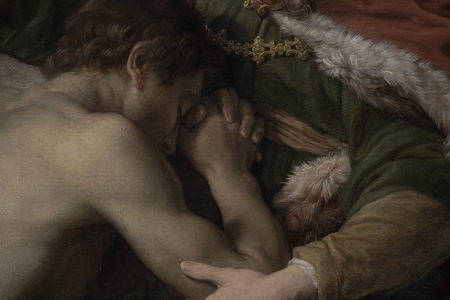The Mystery of Salvation for the Gentiles
When Jesus was on Earth, He told His disciples, “Do not go into the way of the Gentiles. . . . Go rather to the lost sheep of the house of Israel” (Mt. 10:5–6).
When a Canaanite woman implored Jesus on behalf of her demon-possessed daughter, “Have mercy on me, O Lord, Son of David!” (15:22), Jesus replied, “I was not sent except to the lost sheep of the house of Israel” (v. 24). Yet the woman’s faith was so great He healed her daughter immediately (v. 28).
Jesus, of course, was the Messiah of Israel. So, where did that leave the Gentiles?
Salvation for Gentiles was a mystery to Israel, and even the prophets who spoke of the coming salvation studied the prophecies to try and ascertain the circumstances and timing of Messiah’s coming (1 Pet. 1:10–12). Though the Holy Spirit moved them to write the prophecies, they still pored over them intently to understand their meaning.
The Hebrew Scriptures hinted that God’s redemption would be shared with the world: “The scepter shall not depart from Judah . . . until Shiloh [Messiah] comes; and to Him shall be the obedience of the people [Hebrew, amim, nations]” (Gen. 49:10). He will rule over all nations, not Israel alone. Through the prophet Isaiah, God declared,
It is too small a thing that You should be My Servant to raise up the tribes of Jacob, and to restore the preserved ones of Israel; I will also give You as a light to the Gentiles, that You should be My salvation to the ends of the earth (Isa. 49:6).
God’s prophecies, however, painted two seemingly conflicting pictures of the Messiah: one of a suffering Servant (Ps. 22; Isa. 53) and one of a conquering King (Ps. 2; 110; Dan. 7; Zech. 9). How could Messiah be both?
What the prophets didn’t easily see was the Messiah’s two advents and the period in between, the Church Age, when salvation would be shared with the world. It was a mystery; and even Jesus’ disciples, who spent three years under His teaching, struggled to understand that the gospel was also for the Gentiles. But there were hints.
The covenant God made with Abraham and extended to Isaac and Jacob provided for widespread salvation when God promised to bless all the families of the world through Abraham’s Seed (Gen. 12:3; 22:18). In Galatians, the apostle Paul affirmed that the Scriptures foresaw God declaring the Gentiles righteous by faith through Abraham’s Seed (3:8, 16).
Because salvation was to be shared with the Gentiles, Isaiah could say, “The Gentiles shall come to your light, and kings to the brightness of your rising” (Isa. 60:3).
Jeremiah spoke of a time when Gentile nations will come to the true God (Jer. 16:19–21). And Zechariah saw a day when “many nations shall be joined to the LORD” and will become His people (Zech. 2:11). Even Malachi referred to God’s name being “great among the Gentiles” (Mal. 1:11).
All these passages presume Gentiles will come to faith in the God of Israel through its Messiah and participate in the restored theocratic Kingdom. But that can only happen if God’s salvation is taken to the world. Salvation does not make Gentiles part of the unique Jewish nation; but it makes them part of God’s family through adoption, enabling them to reap spiritual blessings through the covenants God made with Israel.
This mystery wasn’t fully revealed until after Jesus’ death and resurrection. Today, the church is the vehicle of God’s salvation, a fulfillment of God’s revelation. But a time is coming when God will remove His church in the Rapture and use another method to proclaim His salvation during the most troubling time on Earth.







